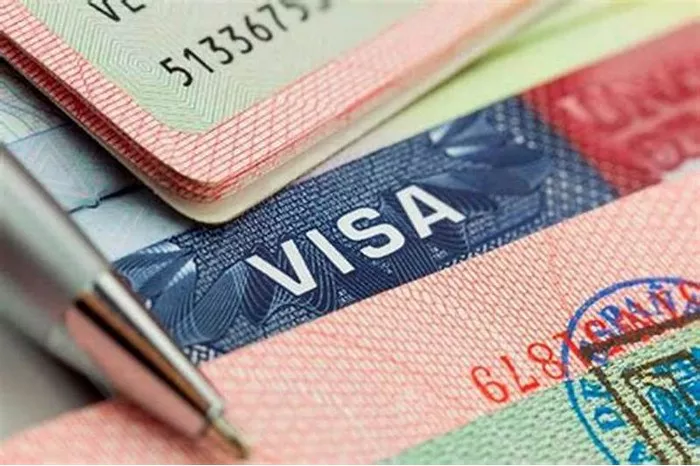In an increasingly interconnected world, the need to travel for various purposes such as tourism, business, education, or even seeking asylum has become a common occurrence. However, crossing international borders often requires obtaining a visa, a legal document issued by a foreign country granting permission for entry. Navigating the visa process can be daunting due to its complexity and variability across different countries. In this comprehensive guide, we delve into the essential requirements and procedures involved in obtaining a visa.
Understanding the Visa Concept
A visa serves as a crucial document regulating entry into a foreign country. It is typically affixed to a passport and contains information such as the traveler’s name, nationality, purpose of visit, duration of stay, and validity of the visa. While some countries have visa-free arrangements or visa-on-arrival options for certain nationalities, many others require travelers to obtain a visa in advance.
Types of Visas
Visas come in various types, each tailored to specific purposes and durations of stay. Common types include:
Tourist Visa: Granted for leisure or recreational travel.
Business Visa: Intended for individuals traveling for business-related activities such as meetings, conferences, or negotiations.
Student Visa: Issued to students pursuing education abroad.
Work Visa: Required for individuals seeking employment in a foreign country.
Transit Visa: Necessary for travelers passing through a country en route to their final destination.
Requirements for Obtaining a Visa
While the specific requirements vary depending on the type of visa and the destination country, several common elements typically include:
Application Form: Applicants are usually required to complete and submit a visa application form, either online or in person, providing personal details, travel itinerary, and purpose of visit.
Valid Passport: A passport with a minimum validity period beyond the intended duration of stay is often mandatory.
Passport-Sized Photographs: Recent passport-sized photographs meeting specific size and quality criteria are usually required.
Proof of Funds: Applicants may need to demonstrate sufficient financial means to cover their expenses during the stay, often through bank statements or sponsorship letters.
Travel Itinerary: Providing details of travel plans, including flight reservations and accommodation arrangements, is commonly required.
Proof of Accommodation: Evidence of accommodation arrangements such as hotel bookings or a letter of invitation from a host may be necessary.
Purpose-Specific Documentation: Additional documents, such as a letter of acceptance from an educational institution for a student visa or an invitation letter from a business contact for a business visa, may be required.
Health Insurance: Some countries mandate travelers to have adequate health insurance coverage for the duration of their stay.
Police Clearance Certificate: A clean criminal record may be necessary for certain types of visas, especially for long-term stays or employment purposes.
Visa Fees: Applicants are typically required to pay a non-refundable visa application fee, the amount of which varies depending on the type of visa and the issuing country.
SEE ALSO: RESTRICTED WORK IN UK VISAS: TYPES & IMPLICATIONS
Visa Application Process
The visa application process can vary significantly depending on the destination country’s regulations and the applicant’s nationality. However, it generally involves the following steps:
Research: Thoroughly research the visa requirements and procedures for the intended destination well in advance of travel.
Complete Application Form: Fill out the visa application form accurately and honestly, providing all required information.
Gather Documents: Collect all necessary supporting documents, ensuring they meet the specified criteria.
Submit Application: Submit the completed application form and supporting documents through the designated channels, which may include online portals, visa application centers, or diplomatic missions.
Biometric Data Collection: Some countries require applicants to provide biometric data such as fingerprints and facial scans as part of the application process.
Attend Interview: In certain cases, applicants may be required to attend a visa interview to further assess their eligibility.
Wait for Processing: Allow sufficient time for the visa application to be processed, which can range from a few days to several weeks depending on various factors such as the visa type and the volume of applications.
Receive Decision: Once the visa application is processed, the applicant will be notified of the decision, which may be an approval, rejection, or request for additional information.
Collect Visa: If approved, collect the visa from the designated location or have it delivered as per the instructions provided.
Tips for a Smooth Visa Application Process
Navigating the visa process can be complex, but certain strategies can help streamline the process:
Plan Ahead: Start the visa application process well in advance of the planned travel date to allow ample time for processing and any unforeseen delays.
Follow Instructions Carefully: Adhere to the visa application guidelines provided by the issuing authority, ensuring all required documents are submitted correctly and in the prescribed format.
Provide Accurate Information: Double-check all information provided in the visa application form and supporting documents to avoid errors or discrepancies that could lead to delays or rejection.
Seek Professional Assistance if Needed: Consider seeking guidance from immigration consultants or legal experts, especially for complex visa applications or if unsure about the requirements.
Be Prepared for Rejection: Understand that visa applications can be rejected for various reasons, and have a contingency plan in place in case of a denial, such as appealing the decision or exploring alternative travel options.
Conclusion
Obtaining a visa is an essential step for international travel, requiring careful planning, preparation, and adherence to specific requirements and procedures. By understanding the visa concept, knowing the types of visas available, and following the prescribed application process diligently, travelers can navigate the complexities of obtaining a visa with greater ease and efficiency, facilitating seamless and hassle-free travel experiences.


